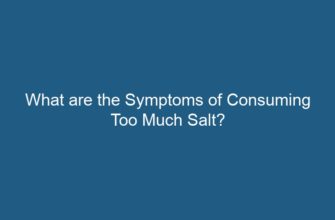Nerve compression, also known as a pinched nerve, can cause significant discomfort and pain. It occurs when excessive pressure is applied to a nerve by surrounding tissues, such as bones, muscles, tendons, or cartilage. This compression can result in various symptoms, including pain, numbness, tingling, and weakness in the affected area.
In order to alleviate the pain and discomfort caused by nerve compression, healthcare professionals often prescribe pain medications. These medications can help manage the symptoms and provide relief to patients. In this article, we will explore the different types of prescription pain medications commonly used to alleviate nerve compression.
- Analgesics
- 1. Nonsteroidal Anti-Inflammatory Drugs (NSAIDs)
- 2. Opioid Analgesics
- Anti-seizure Medications
- 1. Gabapentin (Neurontin)
- 2. Pregabalin (Lyrica)
- Treating Nerve Pain in the Back, Neck and Legs
- How to Treat Chronic Nerve Pain – Medical Minute
- Tricyclic Antidepressants
- 1. Amitriptyline
- 2. Nortriptyline
- Conclusion
- Frequently Asked Questions (FAQs)
- 1. Can over-the-counter pain relievers help with nerve compression?
- 2. Are there any non-medication treatments for nerve compression?
- 3. How long does it take for prescription pain medications to relieve nerve compression symptoms?
- 4. Can prescription pain medications cure nerve compression?
- 5. Are there any side effects associated with prescription pain medications for nerve compression?
- 6. Can opioids be used for long-term management of nerve compression?
- 7. Can prescription pain medications interact with other medications?
- 8. Can nerve compression be prevented?
- 9. Can nerve compression occur in any part of the body?
- 10. When should I seek medical attention for nerve compression?
Analgesics
Analgesics, commonly known as painkillers, are medications that help relieve pain without causing loss of consciousness. They act on the peripheral and central nervous systems to reduce pain signals. There are several types of analgesics that may be prescribed for nerve compression:
1. Nonsteroidal Anti-Inflammatory Drugs (NSAIDs)
NSAIDs are a class of medications that reduce inflammation, relieve pain, and lower fever. They work by inhibiting the production of prostaglandins, which are chemicals responsible for pain and inflammation. Examples of NSAIDs commonly prescribed for nerve compression include:
- Ibuprofen (Advil, Motrin)
- Naproxen (Aleve)
- Celecoxib (Celebrex)
It is important to follow the recommended dosage and duration of use for NSAIDs, as prolonged or excessive use can lead to gastrointestinal complications and other side effects.
2. Opioid Analgesics
Opioid analgesics, also known as narcotics, are powerful pain medications that work by binding to opioid receptors in the brain, spinal cord, and other parts of the body. They can effectively relieve moderate to severe pain but are associated with a higher risk of dependence and addiction. Commonly prescribed opioid analgesics for nerve compression include:
- Oxycodone (OxyContin, Percocet)
- Morphine
- Hydrocodone (Vicodin)
Due to the potential for misuse and addiction, opioids are typically prescribed for short-term use or in cases where other pain management options have been ineffective.
Anti-seizure Medications
Anti-seizure medications, also known as anticonvulsants, are often prescribed to manage nerve pain caused by conditions such as nerve compression. While they are primarily used to treat seizures, these medications can also help alleviate neuropathic pain by stabilizing abnormal electrical activity in the nerves. Some commonly prescribed anti-seizure medications for nerve compression include:
1. Gabapentin (Neurontin)
Gabapentin is commonly used to treat nerve pain associated with conditions such as shingles and diabetic neuropathy. It works by modulating the release of certain neurotransmitters involved in pain signaling. Gabapentin is usually started at a low dose and gradually increased to achieve optimal pain relief.
2. Pregabalin (Lyrica)
Pregabalin is another anticonvulsant medication commonly prescribed for nerve pain. It binds to calcium channels in the central nervous system, reducing the release of pain-causing neurotransmitters. Pregabalin is approved for the treatment of various neuropathic pain conditions, including nerve compression.
Treating Nerve Pain in the Back, Neck and Legs
How to Treat Chronic Nerve Pain – Medical Minute
Tricyclic Antidepressants
Tricyclic antidepressants (TCAs) are a class of medications primarily used to treat depression. However, they can also be effective in alleviating nerve pain by blocking the reuptake of certain neurotransmitters involved in pain transmission. Some commonly prescribed TCAs for nerve compression include:
1. Amitriptyline
Amitriptyline is often prescribed for the management of chronic nerve pain. It can help improve sleep quality and reduce pain intensity. The dosage of amitriptyline for nerve compression is typically lower than that used for depression treatment.
2. Nortriptyline
Nortriptyline is another TCA commonly prescribed for nerve compression. It has similar effects to amitriptyline but may cause fewer side effects in some individuals.
Conclusion
Prescription pain medications can play a crucial role in relieving the pain and discomfort associated with nerve compression. Analgesics, anti-seizure medications, and tricyclic antidepressants are among the commonly prescribed medications for this condition. It is essential to consult with a healthcare professional to determine the most appropriate medication and dosage for individual cases. Additionally, it is important to follow the prescribed instructions and be aware of potential side effects and risks associated with these medications.
Frequently Asked Questions (FAQs)
1. Can over-the-counter pain relievers help with nerve compression?
Over-the-counter pain relievers such as ibuprofen and acetaminophen may provide temporary relief for mild cases of nerve compression. However, for severe or persistent pain, it is recommended to consult with a healthcare professional who can prescribe appropriate prescription medications.
2. Are there any non-medication treatments for nerve compression?
Yes, non-medication treatments such as physical therapy, stretching exercises, and hot/cold therapy can help alleviate nerve compression symptoms. These treatments aim to reduce inflammation, improve flexibility, and strengthen the affected area. It is best to consult with a healthcare professional or physical therapist for personalized treatment recommendations.
3. How long does it take for prescription pain medications to relieve nerve compression symptoms?
The time it takes for prescription pain medications to provide relief from nerve compression symptoms can vary depending on the individual and the specific medication. Some medications may provide immediate relief, while others may take several days or weeks to take effect. It is important to follow the prescribed dosage and give the medication enough time to work before considering alternative options.
4. Can prescription pain medications cure nerve compression?
Prescription pain medications help manage the symptoms of nerve compression but do not cure the underlying cause. It is important to address the root cause of the nerve compression, such as treating any underlying conditions or injuries, for long-term relief. A healthcare professional can provide a comprehensive treatment plan tailored to the individual’s needs.
5. Are there any side effects associated with prescription pain medications for nerve compression?
Yes, prescription pain medications can have side effects. Common side effects of analgesics include stomach upset, ulcers, and increased bleeding risk. Opioids can cause drowsiness, constipation, and respiratory depression. Anti-seizure medications and tricyclic antidepressants may cause dizziness, drowsiness, and dry mouth. It is important to discuss potential side effects with a healthcare professional and report any concerning symptoms.
6. Can opioids be used for long-term management of nerve compression?
Opioids are generally not recommended for long-term management of nerve compression due to the risk of dependence and addiction. They are typically prescribed for short-term use or in cases where other treatment options have been ineffective. Long-term management of nerve compression often involves a combination of non-medication treatments, physical therapy, and lifestyle modifications.
7. Can prescription pain medications interact with other medications?
Yes, prescription pain medications can interact with other medications. It is important to inform healthcare professionals about all medications, including over-the-counter drugs and supplements, to avoid potential drug interactions. They can assess the safety and potential interactions of prescribed medications with other substances.
8. Can nerve compression be prevented?
While it may not be possible to prevent all cases of nerve compression, certain measures can help reduce the risk. These include maintaining good posture, practicing proper ergonomics, avoiding repetitive motions, staying physically active, and managing underlying medical conditions that may increase the risk of nerve compression.
9. Can nerve compression occur in any part of the body?
Yes, nerve compression can occur in various parts of the body. Common sites include the neck (cervical spine), lower back (lumbar spine), wrists (carpal tunnel syndrome), and elbows (ulnar nerve compression). The symptoms and treatment options may vary depending on the location and severity of the nerve compression.
10. When should I seek medical attention for nerve compression?
It is advisable to seek medical attention if you experience persistent or severe pain, numbness, tingling, or weakness in any part of the body. A healthcare professional can evaluate the symptoms, diagnose the cause of nerve compression, and recommend appropriate treatment options.
In conclusion, prescription pain medications can provide relief for individuals suffering from nerve compression. Analgesics, anti-seizure medications, and tricyclic antidepressants are commonly prescribed to alleviate pain and manage the symptoms. However, it is crucial to consult with a healthcare professional to determine the most suitable medication and dosage for each individual case. Non-medication treatments and lifestyle modifications may also play a significant role in managing nerve compression. It is important to follow the prescribed instructions, be aware of potential side effects, and address the underlying cause of nerve compression for long-term relief.










